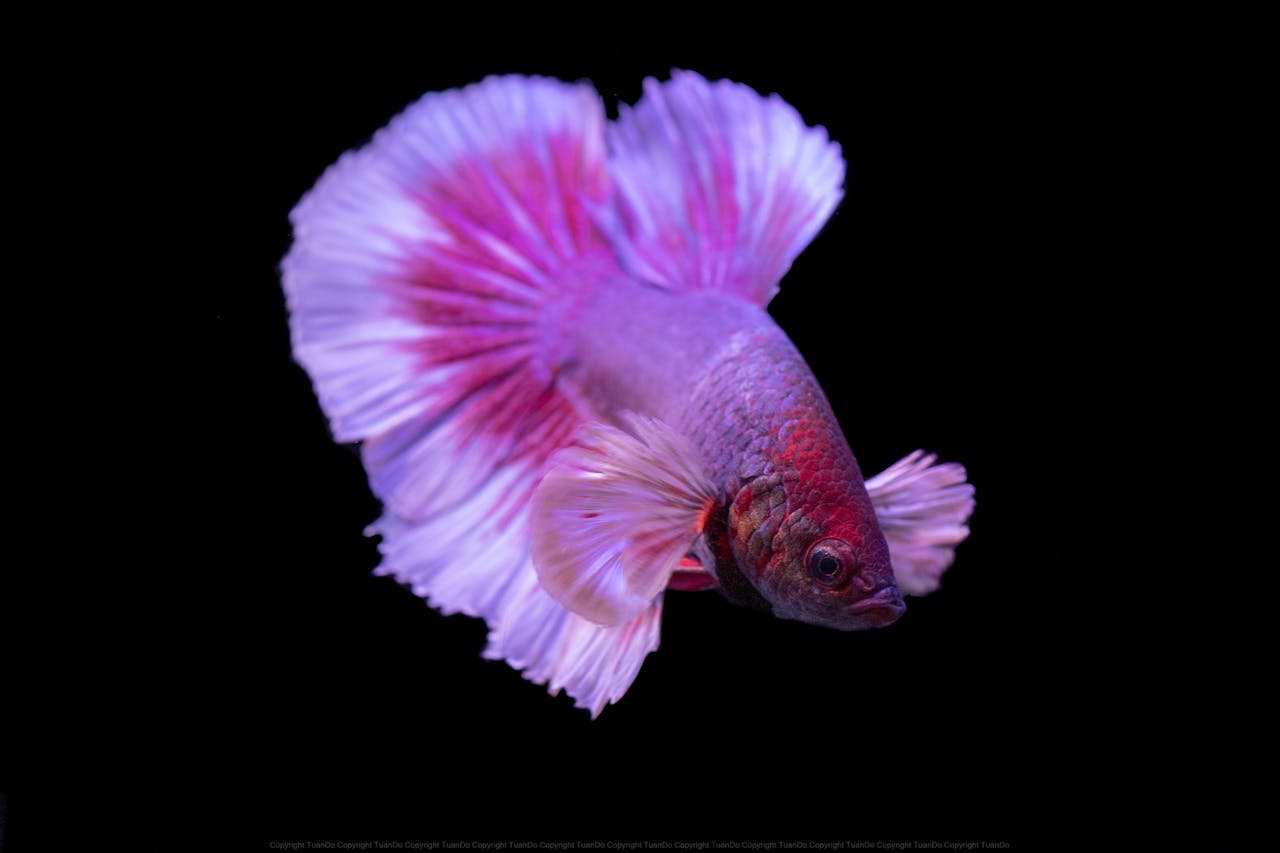Betta fish, known scientifically as Betta splendens, are vibrant and captivating creatures that have captured the hearts of aquarists and casual fish enthusiasts alike. With their stunning array of colors and flowing fins, these fish are not only visually appealing but also possess unique behaviors that make them fascinating to observe. Originating from the shallow waters of Southeast Asia, particularly Thailand, Betta fish have become popular pets around the world.
Their hardy nature and relatively simple care requirements make them an ideal choice for both novice and experienced aquarists. As we delve deeper into the world of Betta fish, we discover that their beauty is matched by a rich history intertwined with cultural significance. These fish are not just ornamental; they have been part of human tradition for centuries.
From their role in ancient rituals to their modern-day popularity in aquariums, Betta fish have a story that reflects both nature’s artistry and humanity’s fascination with aquatic life. Understanding this context is essential as we explore the various aspects of Betta fish, including their use in fighting, which has sparked both interest and controversy.
Key Takeaways
- Betta fish, also known as Siamese fighting fish, are popular aquarium fish known for their vibrant colors and long flowing fins.
- Betta fish fighting has a long history in Southeast Asia, where they were originally bred for fighting purposes.
- Betta fish fighting has evolved from a traditional pastime to a regulated sport with organized competitions and rules.
- The practice of betta fish fighting is controversial, with concerns about animal cruelty and the ethical treatment of the fish.
- Proper training and care for betta fish fighting involves conditioning, diet, and environmental factors to ensure the health and well-being of the fish.
History of Betta Fish Fighting
The Cultural Significance of Betta Fish Fighting
Historical records suggest that these fights were not merely for amusement; they were often associated with gambling and social gatherings, making them a significant part of community life.
From Local Tradition to Global Phenomenon
As we trace the evolution of Betta fish fighting, we find that it has transformed from a local tradition into a more organized sport. In the early 20th century, the practice gained popularity beyond Thailand’s borders, spreading to other parts of Asia and eventually to Western countries.
The Modern Era of Betta Fish Fighting
This expansion was fueled by the increasing interest in exotic pets and the allure of competitive breeding. As Betta fish became more accessible to enthusiasts worldwide, the fighting aspect also evolved, leading to the establishment of formal competitions and events dedicated to showcasing these remarkable creatures.
The Rise of Betta Fish Fighting as a Sport

In recent years, Betta fish fighting has emerged as a recognized sport, attracting participants and spectators alike. The rise of this activity can be attributed to several factors, including the growing popularity of aquaristics and the increasing interest in competitive animal sports. As enthusiasts began to breed Betta fish specifically for fighting, we witnessed a surge in the development of specialized techniques aimed at enhancing their performance in the arena.
This shift has led to a more structured approach to breeding, training, and competing with these fish. Moreover, the advent of social media and online platforms has played a significant role in promoting Betta fish fighting as a sport. We now have access to countless videos showcasing thrilling matches, breeding techniques, and tips for care and training.
This exposure has not only attracted new participants but has also fostered a sense of community among Betta fish enthusiasts. As we engage with one another online, we share our experiences and knowledge, further fueling the growth of this unique sport.
The Controversy Surrounding Betta Fish Fighting
| Aspect | Metrics |
|---|---|
| Number of Betta Fish Fights | Unknown |
| Number of Betta Fish Deaths | Unknown |
| Legal Status | Illegal in many countries |
| Impact on Betta Fish Population | Unknown |
| Efforts to Stop Betta Fish Fighting | Various animal welfare organizations are working to stop this practice |
Despite its rising popularity, Betta fish fighting is not without controversy. Critics argue that the practice is inherently cruel and raises ethical concerns regarding animal welfare. The idea of pitting two living beings against each other for entertainment purposes is difficult for many to accept.
As we consider these arguments, it becomes clear that there is a significant divide between those who view Betta fish fighting as a legitimate sport and those who see it as a form of animal abuse. In addition to ethical concerns, there are also legal implications surrounding Betta fish fighting in various regions. While some countries have embraced the practice as part of their cultural heritage, others have enacted laws prohibiting animal fighting altogether.
This legal landscape creates challenges for enthusiasts who wish to participate in or promote Betta fish fighting as a sport. As we navigate this complex issue, it is essential to consider both sides of the debate and strive for a balanced understanding of the implications involved.
Training and Care of Betta Fish for Fighting
For those who choose to engage in Betta fish fighting, proper training and care are paramount. We must first understand that not all Betta fish are suited for fighting; selective breeding has produced individuals with specific traits that enhance their performance in the arena.
This includes maintaining clean water, appropriate tank size, and a balanced diet rich in nutrients. Training a Betta fish for competition involves more than just physical conditioning; it also requires mental stimulation and socialization. We can create an environment that encourages natural behaviors by introducing mirrors or other stimuli that provoke territorial responses.
This practice helps our fish develop confidence and aggression, which are crucial traits for success in the ring. However, it is essential to strike a balance between training and stress management; overexertion can lead to health issues that may hinder performance.
The Fight Process and Rules

The process of Betta fish fighting is both thrilling and structured. Typically held in controlled environments such as arenas or designated tanks, these fights are designed to ensure the safety of both competitors while providing an entertaining spectacle for spectators. Before each match, participants must adhere to specific rules regarding tank size, water conditions, and the health status of their fish.
These regulations aim to create a fair playing field while minimizing risks associated with injury or stress. During a fight, two Betta fish are placed in a neutral arena where they can display their natural aggression. The match usually lasts until one fish demonstrates dominance by displaying aggressive behavior or forcing the other into submission.
Observers closely monitor the fight to ensure that it remains within acceptable limits; if one fish appears overly stressed or injured, officials may intervene to end the match prematurely. This careful oversight reflects an understanding of the need for responsible practices within the sport.
The Impact of Betta Fish Fighting on the Betta Fish Population
As we examine the impact of Betta fish fighting on their population, we must consider both positive and negative aspects. On one hand, the demand for high-quality fighting Bettas has led to increased interest in breeding programs focused on enhancing desirable traits such as color, fin shape, and aggression. This focus on selective breeding can contribute to genetic diversity within certain lines while also promoting responsible practices among breeders.
Conversely, there are concerns about overbreeding and its potential consequences on the overall health of Betta fish populations. As breeders prioritize specific traits for competition purposes, we risk creating genetic bottlenecks that may lead to health issues down the line. Additionally, the commercialization of Betta fish fighting can result in unethical practices such as poor living conditions or inadequate care for non-competitive individuals.
It is crucial for us as enthusiasts to advocate for responsible breeding practices that prioritize the well-being of all Betta fish.
The Future of Betta Fish Fighting
Looking ahead, the future of Betta fish fighting remains uncertain as societal attitudes toward animal sports continue to evolve. While some regions embrace this practice as part of their cultural heritage, others are increasingly advocating for animal rights and welfare considerations. As we navigate this changing landscape, it is essential for us to engage in open dialogue about the ethical implications surrounding Betta fish fighting.
To ensure a sustainable future for this sport, we must prioritize responsible practices that promote the health and well-being of our fish while respecting differing viewpoints on animal welfare. By fostering a culture of education and awareness within the community, we can work towards creating an environment where Betta fish fighting can coexist with ethical considerations. Ultimately, our collective efforts will shape the future trajectory of this unique sport while honoring the rich history and beauty of these remarkable creatures.
If you are interested in learning more about fighter fish fights, you may want to check out this article on bettafish.in.
It is a great resource for those looking to understand the dynamics of fighter fish fights and how to prevent them in a home aquarium setting.


